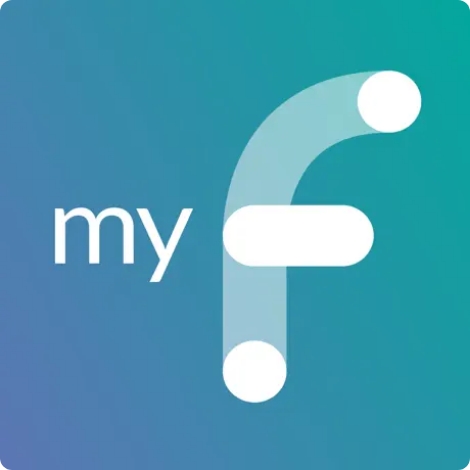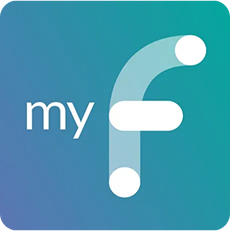
You are about to leave DOPTELET.com/itp and go to an external page.
Please note that Sobi, Inc. is not responsible for the content of the website you are
about to visit.
Go back


You are about to leave DOPTELET.com/itp and go to an external page.
Please note that Sobi, Inc. is not responsible for the content of the website you are
about to visit.
Go back
Discover the Doptelet Copay
Assistance Program
Terms and Conditions

Sobi is providing this free tool to help you find healthcare providers in your area who may have experience treating chronic ITP. Neither Sobi nor MediFind pay healthcare providers to be listed in this tool and healthcare providers do not pay to be listed in the tool. Just because a healthcare provider is listed in the tool does not mean Sobi endorses their qualifications or recommends their medical care. The search results of healthcare providers are sorted by the distance from the location entered. Choosing a healthcare provider is an important decision requiring careful consideration. Sobi is not responsible for your choice or actions you take because of information provided by the tool.
It’s important to understand the signs and symptoms of ITP. Knowing what to look for, and tracking any changes, can help you make informed treatment decisions with your doctor.

ITP is known as a heterogeneous disease, which means you may experience different signs and symptoms than someone else with ITP.
A sign is something that your healthcare team can observe or measure, such as your platelet counts. Symptoms are the feelings and concerns that you experience, such as fatigue. Most people with ITP have platelet counts under 100,000 per microliter, but those counts vary from person to person, and you may find your platelet counts are unpredictable at times. The lower your platelet count, the greater the risk of ITP symptoms.
Here are some common signs and symptoms of ITP:
You may feel exhausted and unable to keep up with everyday activities to the point where you may feel tired even after getting a full night’s sleep.
You may notice your skin start to bruise very easily, even spontaneously, from damaged blood vessels under the skin. Bruising may happen even if you don’t remember injuring yourself.
You may see small red or purple spots start to appear from broken blood vessels on areas like your upper arms or lower legs.
You may experience bleeding from your gums and nose, have an unusually heavy menstrual flow, or notice cuts bleeding for longer periods of time. You may also see blood in your urine, vomit, or stool. When platelets are low, your doctor may tell you to limit physical activity.
You may feel stress and worry related to your signs and symptoms of ITP. Check out these resources that may help you navigate and manage your uncertainties.
One of the most important steps to getting the care you deserve is finding the right hematologist in your area.
Sobi is not responsible for the choices or actions that you or others take because of information provided by this free tool.

my florio ITP™ is an all-in-one app designed to monitor all things ITP—platelet counts, bruising events, appointments, treatments, and more—plus, it’s free!
Get started with my florio ITP™ by downloading the app through the Apple Store or Google Play.


Sign up to receive tools and tips, including a free journal to help you track your platelet counts, symptoms, and treatment—plus you’ll get some surprises, too!
GET ITP TIPS
Indication & Important Safety Information
What is DOPTELET (avatrombopag)?
Doptelet is a prescription medicine used to help treat low blood platelet counts in adults with chronic immune thrombocytopenia (ITP) when other treatments have not worked well enough. It is not known if Doptelet is safe or works in children.
Who should not receive Doptelet?
You should not receive Doptelet if you have ever had a blood clot. You should call your healthcare provider or get medical help right away if you have any of the signs or symptoms of a blood clot after taking Doptelet. They can be life-threatening or cause death.
Tell your healthcare provider if you are pregnant or breastfeeding, or plan to be while taking Doptelet. It is not known if Doptelet may have unintended side effects for your unborn baby or if Doptelet passes into breast milk. Do not breastfeed while taking Doptelet and for at least 2 weeks after the last dose.
Before taking Doptelet, you should tell your healthcare provider about all your medical conditions and medicines including vitamins, supplements, and herbal remedies.
What are the possible side effects of Doptelet?
For patients with chronic ITP, the most common side effects are headache, fatigue, bruising, nosebleeds, upper respiratory tract infection, joint pain, bleeding gums, purple or red spots on your skin (petechiae), and runny nose.
You Should Know: These are not all of the possible side effects of Doptelet. For more information, ask your healthcare provider or review the Prescribing Information at https://www.doptelet.com/doptelet.pdf.
If you suspect that you have experienced a side effect, call your healthcare provider. You may also report them to the US Food and Drug Administration (FDA) at 1-800-FDA-1088.
For further information, please see full Prescribing Information, including the Patient Information Leaflet.


What is DOPTELET® (avatrombopag)?
Doptelet is a prescription medicine used to help treat low blood platelet counts in adults with chronic immune thrombocytopenia (ITP) when other treatments have not worked well enough. It is not known if Doptelet is safe or works in children.
Who should not receive Doptelet?
You should not receive Doptelet if you have ever had a blood clot. You should call your healthcare provider or get medical help right away if you have any of the signs or symptoms of a blood clot after taking Doptelet. They can be life-threatening or cause death.
What is DOPTELET (avatrombopag)?
Doptelet is a prescription medicine used to help treat low blood platelet counts in adults with chronic immune thrombocytopenia (ITP) when other treatments have not worked well enough. It is not known if Doptelet is safe or works in children.
Who should not receive Doptelet?
You should not receive Doptelet if you have ever had a blood clot. You should call your healthcare provider or get medical help right away if you have any of the signs or symptoms of a blood clot after taking Doptelet. They can be life-threatening or cause death.
Tell your healthcare provider if you are pregnant or breastfeeding, or plan to be while taking Doptelet. It is not known if Doptelet may have unintended side effects for your unborn baby or if Doptelet passes into breast milk. Do not breastfeed while taking Doptelet and for at least 2 weeks after the last dose.
Before taking Doptelet, you should tell your healthcare provider about all your medical conditions and medicines including vitamins, supplements, and herbal remedies.
What are the possible side effects of Doptelet?
For patients with chronic ITP, the most common side effects are headache, fatigue, bruising, nosebleeds, upper respiratory tract infection, joint pain, bleeding gums, purple or red spots on your skin (petechiae), and runny nose.
You Should Know: These are not all of the possible side effects of Doptelet. For more information, ask your healthcare provider or review the Prescribing Information at https://www.doptelet.com/doptelet.pdf.
If you suspect that you have experienced a side effect, call your healthcare provider. You may also report them to the US Food and Drug Administration (FDA) at 1-800-FDA-1088.
For further information, please see full Prescribing Information, including the Patient Information Leaflet.

This website uses cookies. By continuing to
use this website, you consent to our use of these cookies. Read more about our use of cookies